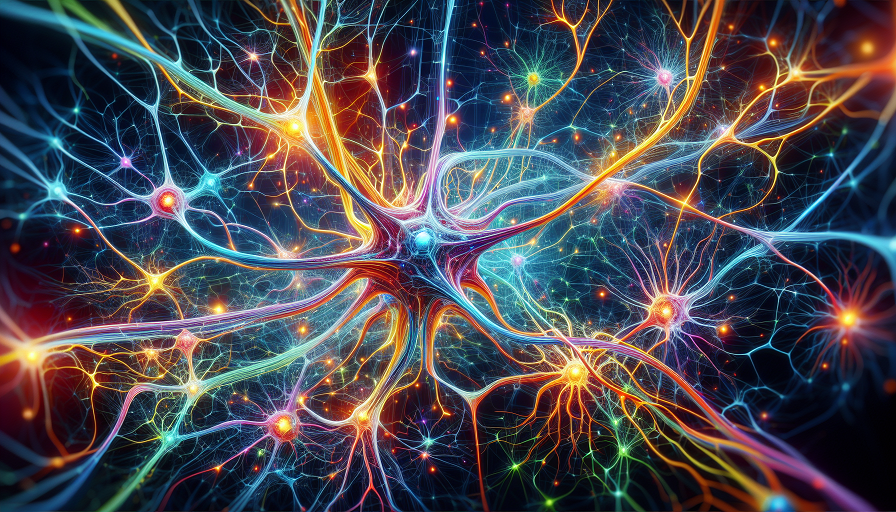
Lifelong learning isn’t just about acquiring new skills or earning certifications—it’s about keeping your brain active, engaged, and resilient. Staying curious acts like a mental fountain of youth, helping your brain adapt and thrive at any age. From improving memory to fostering creativity, the benefits of continuous learning are undeniable.
Contents
How Lifelong Learning Promotes Brain Plasticity
Brain plasticity, or neuroplasticity, is your brain’s ability to adapt, reorganize, and form new neural connections. Lifelong learning supercharges this process, keeping your brain flexible and capable of growth throughout life.
Building New Neural Pathways
Every time you learn something new, your brain creates fresh neural connections. For example, taking up a new hobby like knitting or learning a musical instrument stimulates the creation of pathways that enhance problem-solving and coordination.
Reinforcing Existing Connections
Revisiting and expanding on what you already know strengthens existing neural networks. A history enthusiast might dive deeper into a specific era, enriching their understanding while reinforcing memory and recall abilities.
Reducing Cognitive Decline
Research shows that continuous learning can delay the onset of cognitive decline. Older adults who engage in mentally stimulating activities—like learning a language or taking courses—demonstrate better memory and reasoning skills than those who don’t.
The Role of Curiosity in Brain Health
Curiosity is the spark that fuels lifelong learning. It encourages you to ask questions, seek answers, and explore new possibilities, all of which keep your brain sharp and engaged.
Activating the Reward System
Curiosity triggers the release of dopamine, the brain’s “feel-good” neurotransmitter. This creates a positive feedback loop, making you feel rewarded every time you learn something new or solve a mystery.
Encouraging Exploration
Curiosity leads you to explore topics or skills outside your comfort zone. A curious mind might decide to take up photography or dive into astrophysics, discovering hidden talents or passions along the way.
Strengthening Problem-Solving Abilities
Curiosity drives you to look at problems from multiple angles, fostering innovative solutions. For example, an engineer might draw inspiration from nature to design more efficient systems—a practice known as biomimicry.
Memory and Lifelong Learning: A Winning Combination
Lifelong learning not only enhances memory but also makes it easier to retain and retrieve information. By staying curious, you create mental frameworks that support effective learning and recall.
Improving Working Memory
Engaging in activities that challenge your memory—like memorizing poems or solving puzzles—keeps your working memory sharp. A teacher learning new students’ names each year strengthens their ability to hold and manipulate information.
Connecting New Information
Lifelong learners excel at connecting new information to existing knowledge. A biology enthusiast might relate new discoveries about genetics to earlier lessons on cellular function, creating a cohesive mental framework.
Boosting Long-Term Retention
Active engagement, such as discussing or teaching what you’ve learned, solidifies long-term memory. Sharing insights from a book club discussion ensures you remember key themes and ideas for years to come.
How Lifelong Learning Fosters Resilience
Resilience is the ability to bounce back from challenges, and lifelong learning plays a crucial role in building this mental toughness. By staying curious and adaptable, you develop skills to navigate life’s uncertainties.
Adapting to Change
Learning equips you with tools to adapt to new circumstances. For instance, mastering new software at work makes you more confident in handling technological changes, reducing stress and boosting productivity.
Overcoming Fear of Failure
Lifelong learners view mistakes as opportunities to grow rather than setbacks. A budding baker who burns their first loaf of sourdough might tweak their technique instead of giving up, eventually mastering the skill.
Strengthening Emotional Resilience
Engaging in reflective learning—like journaling or meditation—enhances emotional regulation and self-awareness. These practices help you manage stress and approach challenges with a clear, calm mindset.
Practical Ways to Embrace Lifelong Learning
Becoming a lifelong learner doesn’t require major life changes—just a commitment to curiosity and growth. Here are some practical strategies to keep your brain engaged and youthful.
Set Learning Goals
Define what you want to learn and why. Whether it’s mastering French, understanding economics, or learning to paint, setting specific goals gives your curiosity direction and purpose.
Explore New Experiences
Step outside your comfort zone by trying new activities. Attend workshops, join a local club, or explore new genres of books and music. Each experience enriches your mental landscape and broadens your perspective.
Leverage Technology
Use online resources like Khan Academy, Coursera, or YouTube tutorials to learn at your own pace. A retiree interested in digital art might use these platforms to master graphic design skills from home.
Real-Life Stories of Lifelong Learners
The transformative power of lifelong learning is best seen through real-life examples. Here are inspiring stories of individuals who embraced curiosity and reaped mental benefits.
The Retiree Who Became a Language Enthusiast
A 65-year-old retiree began learning Spanish to prepare for a trip to Spain. They not only improved their cognitive abilities but also gained confidence and joy in communicating with locals during their travels.
The Professional Who Pivoted Careers
A mid-career accountant decided to learn coding through online courses. Within two years, they transitioned into a tech career, proving that staying curious can open unexpected doors.
The Artist Who Found New Inspiration
A painter took up photography to expand their artistic horizons. The new medium inspired fresh ideas for their paintings, demonstrating how learning fuels creativity across disciplines.

